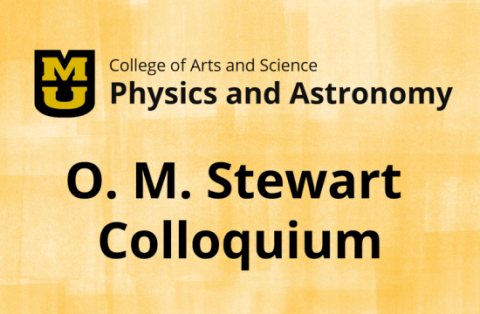COLLOIDAL PHYSICS THAT INSTANTIATE LIFE IN BIOLOGICAL CELLS
Abstract:
We are interested in how physics at the colloidal scale instantiate life in biological cells. While principles from physics have driven recent paradigm shifts in how collective biomolecular behaviors orchestrate life, many mechanistic aspects of e.g. transcription, translation, and condensation remain mysterious because understanding and controlling them requires unifying two disparate physical regimes: the atomistic (structural biology) and the microscopic (systems biology). Colloidal-scale modeling bridges this divide and links molecular-scale behaviors to whole-cell function. Today I will discuss our physics-based computational model of a bacterial cell, where we represent biomolecules and their interactions physically and chemically, individually and explicitly. With it, we tackle a fundamental open question in biology, from a physico-chemical perspective: why protein synthesis speeds up during faster E. coli growth, which cannot be explained by increased ribosome count – and must thus be explained by increased per-ribosome productivity. We show that kinetics and chemistry alone cannot explain this speedup. We report a new mechanism, “stoichiometric crowding”, that leads to a previously undiscovered increase in ribosome productivity that in turn drives the speedup in protein synthesis. More generally, our computational study of protein synthesis in E. coli from the tandem perspective of cell biology and meso-scale physics presents a unique opportunity to broadly explore how the physical state of the cell impacts biological function.
Speaker Bio:
Roseanna N. Zia is the Associate Dean for Research in the College of Engineering and Wollersheim Professor of Mechanical and Aerospace Engineering at the University of Missouri – Columbia. She received her Ph.D. from the California Institute of Technology in Mechanical Engineering in 2011 with Professor John F. Brady, for development of theory in colloidal hydrodynamics. Zia subsequently conducted post-doctoral study of colloidal gels at Princeton University, in collaboration with Professor William B. Russel. Zia began her faculty career at Cornell University in January 2013, then subsequently moved her research group to Stanford University in 2017, becoming a tenured professor of Chemical Engineering. She moved her research group to Mizzou in 2023.
Dr. Zia’s research includes developing micro-continuum theory for structure-property relationships of flowing suspensions, elucidating the mechanistic origins of the colloidal glass transition, and multi-scale computational modeling of reversibly bonded colloidal gels. More recently, her research group has begun to unlock the fundamental connections between colloidal-scale physics and life-essential processes in biological cells using theoretical colloid physics, biological modeling, and high-fidelity computational models. Her group works to combine these areas of research to shed light on the matter/life nexus.
Dr. Zia’s work has been recognized by multiple awards, including a Sloane Foundation Grant, two PECASE Awards, the Office of Naval Research (ONR) Director of Research Early Career Award, the ONR Young Investigator award, the NSF CAREER Award, the NSF BRIGE Award, the Publication Award from the Society of Rheology, the Engineering Sonny Yau (’72) Teaching Award, and the Tau Beta Pi Teaching Honor Roll Award. Most recently she was named an Otterson Faculty Fellow at Stanford. She has delivered over 80 invited, keynote, and plenary talks, and several award lectures.
Dr. Zia serves as an Associate Editor for the Journal of Rheology, and on the Advisory Boards of the AIChE Journal and the Journal of Colloid and Interface Science.
